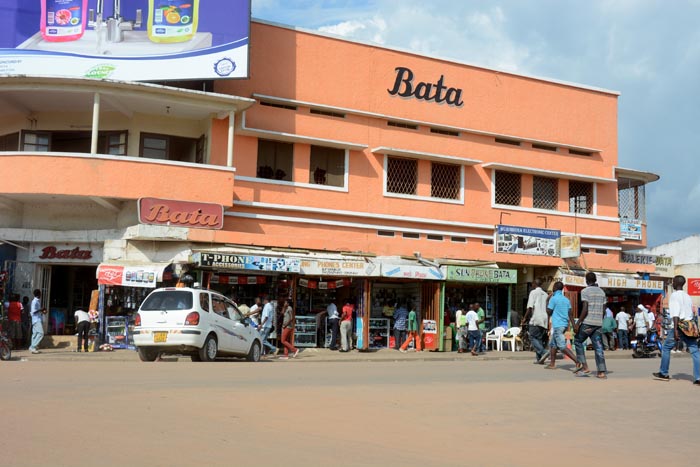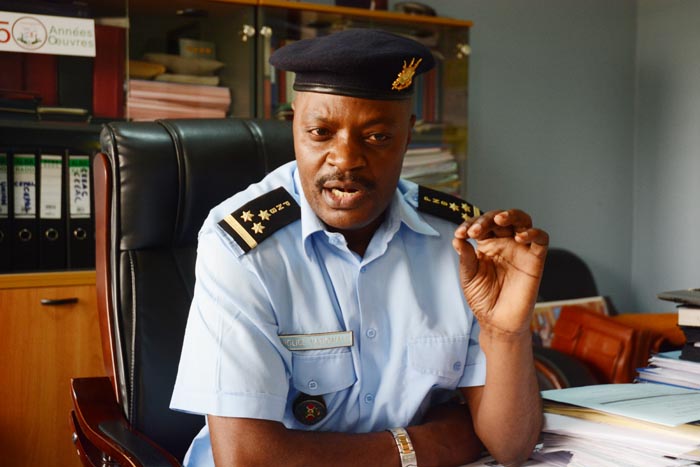Rwandans who do business in front of ‘Kiosque Coca Cola’ and at Avenue de la Mission in Bujumbura complain that the police confiscate their documents.

At Bata where some of Rwandans run their business ©Iwacu
“A police officer came and askedfor my documents”, says a businessman who sells cell phone accessories at BATA. “When I gave him my passport and he saw that I have a six months visa,he told me that I am not allowed to operate in Burundi with this visa. I asked him why and he told me I need a two year visa that costs 500 dollars.”
One of the businessman operating in Bujumbura says that he was detained for two days at ‘Bureau Special de Recherche’, without knowing why. “I have all the required documents as a foreigner. But when I asked them why they detained me, the police say that I don’t have the right papers. Eventually I paid a bribe in order to get my documents and save our business”, he says.
He complains about the police behavior, not only because its affects his business, but also his family. “When my children heard that I was arrested, they were scared. One of my children suggested we go back home to Rwanda”, he says. This is indeed what some of his friends have done; they gave up and returned to Rwanda.
Citizens from the partner states of the East African Community should be able to benefit from the free movement of people, labour and business. Article104 of the EAC Treatystipulates that ‘partner States agree to adopt measures to achieve the free movement of persons, labour and services and to ensure the enjoyment of the right of establishment and residence of their citizens within the community’.
The EAC Common Market Protocol requires that the partner states guarantee the free movement of EAC citizens within their territories, but a few months before the 2015 implementation deadline, this is far from being achieved. Only Rwanda, Kenya, and Uganda have abolished the requirement of work permits and ensure the free movement of labour.
At the East African Business Summit in Kigali last week, Burundi indicated it plans to waive the work permit fee for EAC citizens. But, as the experiences of Rwandan businessmen illustrate, this is clearly not the case yet. “Our rights are abused”, one businessmanpoints out.
Another Rwandese businessman who operates at Avenue de la Mission tells the story of how the police came to ask for his documents and took them to the Rwandan border. Once there, the Rwandan police checked and found the documents in order. They asked the Burundian police why they returned the papers and asked them to contact the Police Immigration Service in order to find out what happened. Unfortunately“their cell phone was switched off”, the businessman relates.

Jimmy Hatungimana, General Commissioner of the Border Control Police ©Iwacu
According to Jimmy Hatungimana, General Commissioner of the Border Control Police, the businessmen don’t understand the process. “An entry visa in all EAC member states is free for any citizen of EAC. But this visa does not permit doing business and doesn’t extend more than six months”, the General Commissionerpoints out. “To do business, they need a work permit.”
At present the work permits for Burundi are divided into three categories — professionals are granted a 2 year work permit, refugees 5 years, and foreign residents 20 years. The work permit procedure can take up to a month to complete.
Inspector General of Labour and Social Security Etienne Nkeshimana said that Burundi will start a far-reaching review of its labour code and will bring the national law in line with the EAC Common Market Protocol that stipulates free movement of services.
Nkeshimana: “We are ready to implement and match other EAC partner states in implementing the Protocol. We look forward to reviewing the work permit this year in order to ease the free movement of services.”



















 IWACU Open Data
IWACU Open Data

